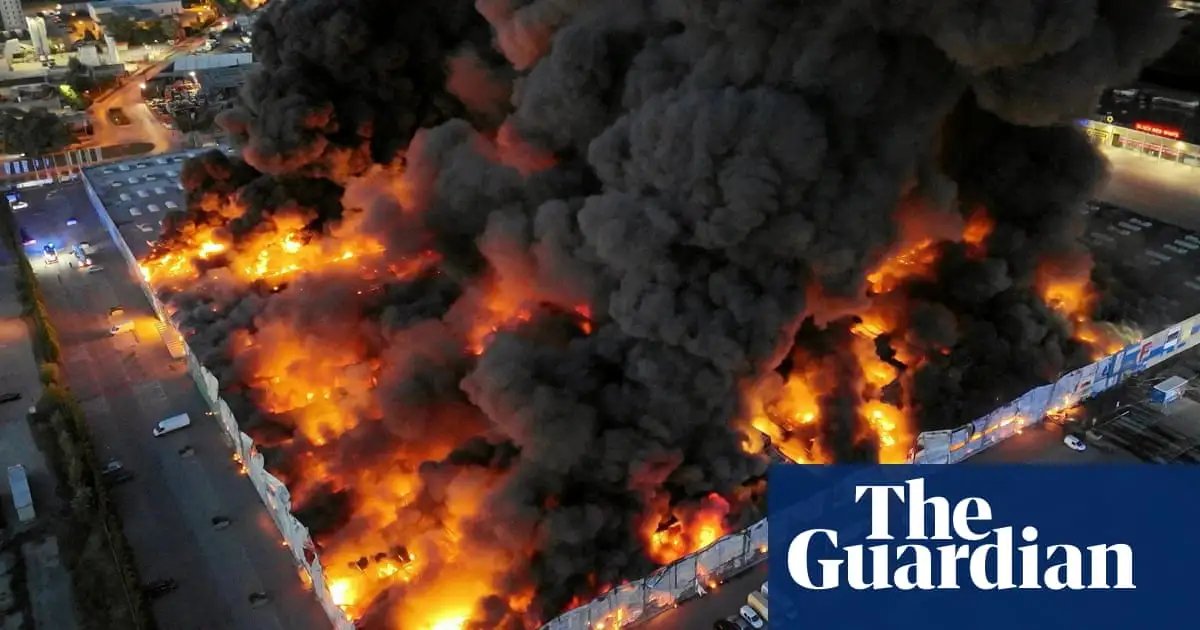- cross-posted to:
- [email protected]
- [email protected]
- cross-posted to:
- [email protected]
- [email protected]
Security services say spate of fires and infrastructure attacks could be part of systemic attempt by Russia to destabilise continent
Security services around Europe are on alert to a potential new weapon of Russia’s war – arson and sabotage – after a spate of mystery fires and attacks on infrastructure in the Baltics, Germany and the UK.
When a fire broke out in Ikea in Vilnius in Lithuania this month, few passed any remarks until the Polish prime minister, Donald Tusk, suggested it could have been the work of a foreign saboteur.



This is the best summary I could come up with:
Security services around Europe are on alert to a potential new weapon of Russia’s war – arson and sabotage – after a spate of mystery fires and attacks on infrastructure in the Baltics, Germany and the UK.
Investigators have already alleged potential Russian involvement in an arson attack in east London, an inferno that destroyed the largest shopping mall in Poland, a sabotage attempt in Bavaria in Germany and antisemitic graffiti in Paris.
They point out that after the cold war, foreign intelligence operations consisted of spies and their handlers, but in the era of social media, vandals can be hired, leaving few connections to other attackers as pay-as-you-go saboteurs paid a few hundred euros or in cryptocurrency.
Such is the emerging concern that these hybrid attacks could be the work of Russia that the issue was raised at a summit of foreign and defence ministers in Brussels this week with Dutch, Estonian and Lithuanian security officials all warning of national vulnerabilities.
A spokesperson for Ikea said investigations were continuing into the source of the fire in Lithuania but it was among the examples, along with an attempted arson attack on a paint factory in Poland, that Tusk cited in his warning of potential foreign interference.
In April, a British man was accused of orchestrating an arson attack on two units linked to a Ukrainian businessman in an industrial estate in Leyton, east London, after allegedly being recruited by Russian intelligence.
The original article contains 970 words, the summary contains 241 words. Saved 75%. I’m a bot and I’m open source!